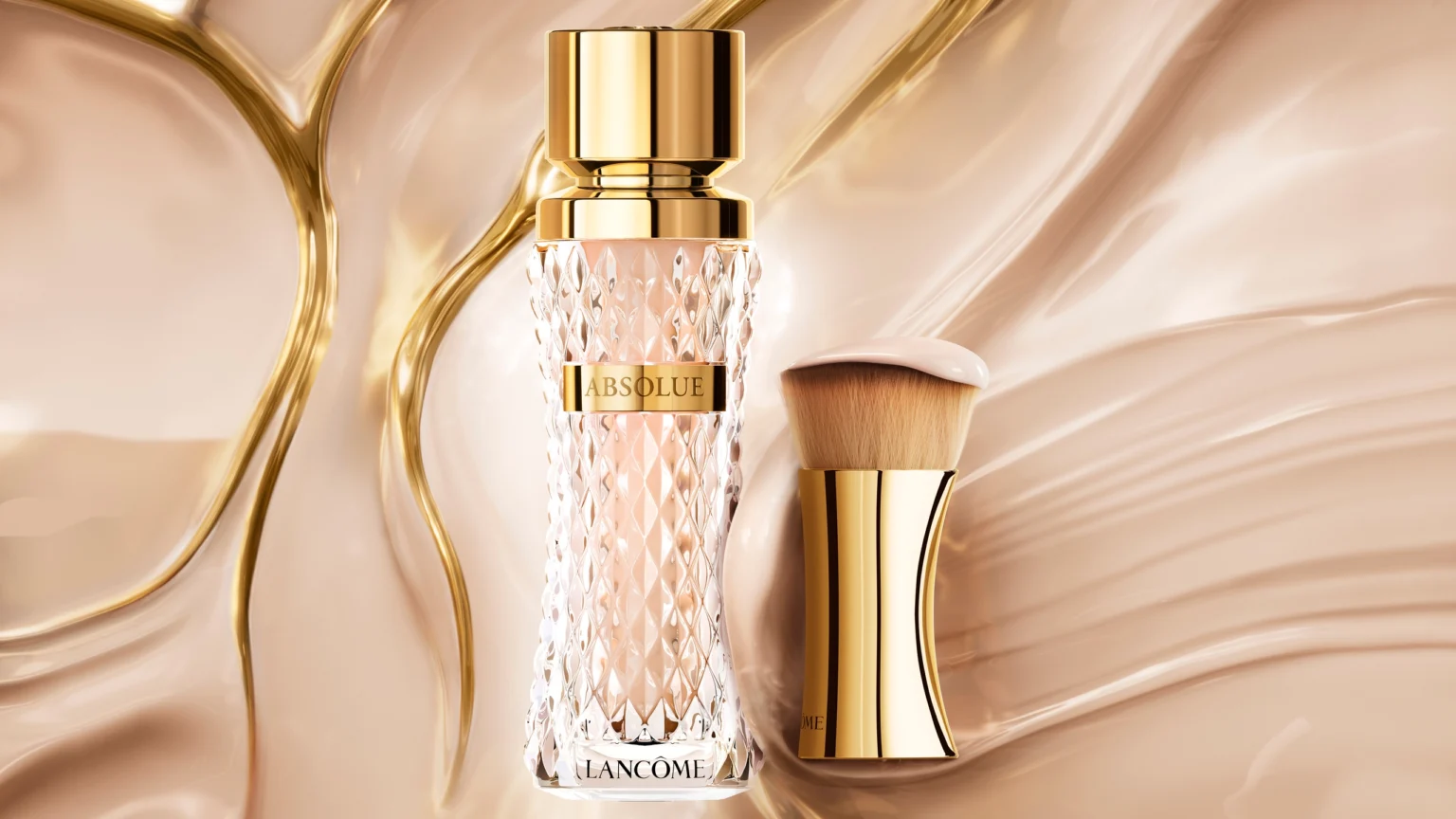Glassmaking Glossary
The Glass Alphabet by Verescence
Through this glass alphabet, discover the technical terms that shape the world of glass and define our uniqueness.
A
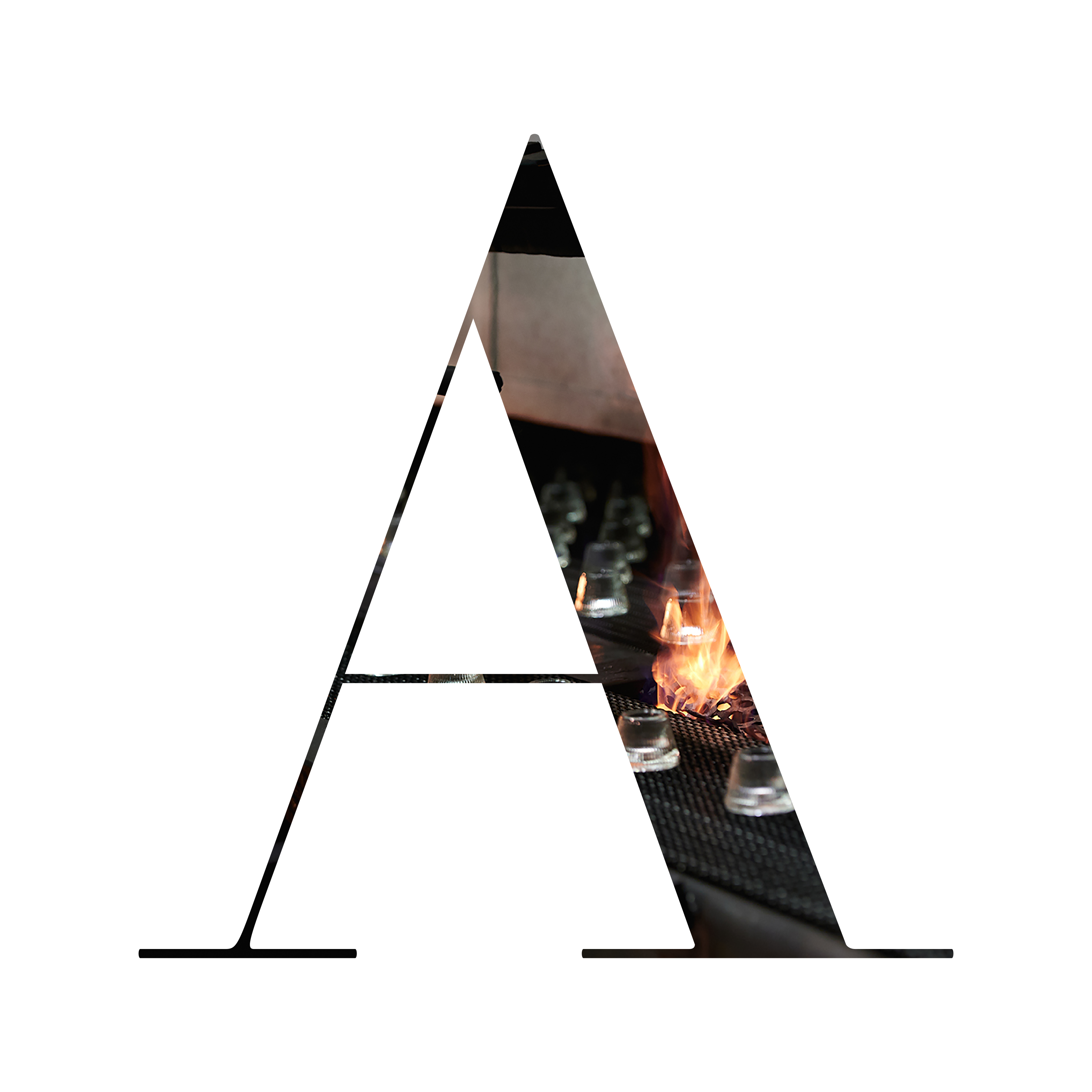
Acid-etching
Chemical attack on glass by immersion in an acid bath.
Annealing
The forming process requires rapid cooling of the glass surface due to contact with molds, which induces internal stresses (differences in thermal expansion).
Annealing lehr
Tunnel furnace about twenty meters long in which bottles pass through after leaving the IS machine to undergo an annealing heat treatment.
B
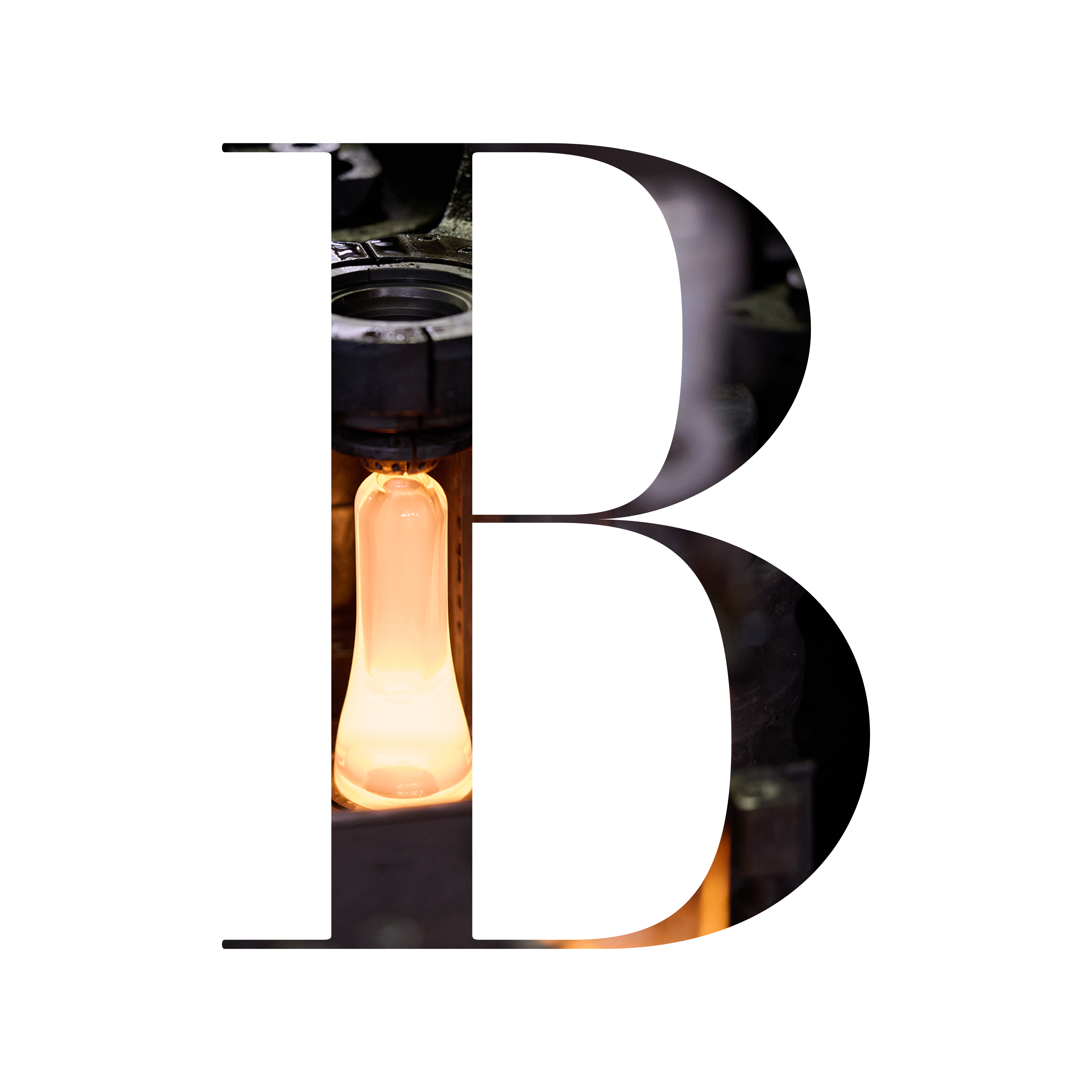
Blow and blow process
Forming technique where the glass gob is shaped in the blank mold by blowing.
Blank
Preform of the bottle produced in an initial forming step. It includes the already-formed neck finish and a hollow pocket of intermediate shape (blank mold).
C

Collar
Upper part of the bottle that receives the closure (cap, lid…) and has standardized dimensions. It is formed from the initial blank. There are two types of neck finishes: screw (SNI, GCMI or GPI, Europa) and crimped (FEA).
Unit of products: number of “cols” = number of bottles.
Cold End
Area starting from the annealing lehr where quality control, sorting, and packaging of bottles take place.
Coloring of the glass
Obtained either during melting by adding mineral colorants (metal oxides) to the vitrifiable mix or by inserting highly pigmented small granules (frits) into the feeder channel.
Composition
Mixture of raw materials introduced into the furnace: sand, limestone, and soda ash.
Cullet
Broken glass from manufacturing waste. It is reintroduced into the composition to be remelted in the furnace.
F

Feeder
Channel that transports molten glass from the furnace to the IS machine.
Fire polishing
Surface treatment where bottles are reheated for a few microns to give them an optimal surface quality without deforming them. Between the forming machine and the annealing lehr, bottles move on a metal conveyor belt, with fire polishing burners positioned on both sides according to the bottle’s size, shape, and detected defects. The glass surface is heated to 2500°F.
Forming
Shaping of a hollow glass article by molding using a mechanical plunger (pressing) or compressed air (blowing).
Frits
Small tinted granules used to color glass.
Furnace
Large refractory-lined tank containing molten glass. It operates continuously with a constant glass level. It has a melting zone and a refining zone.
I
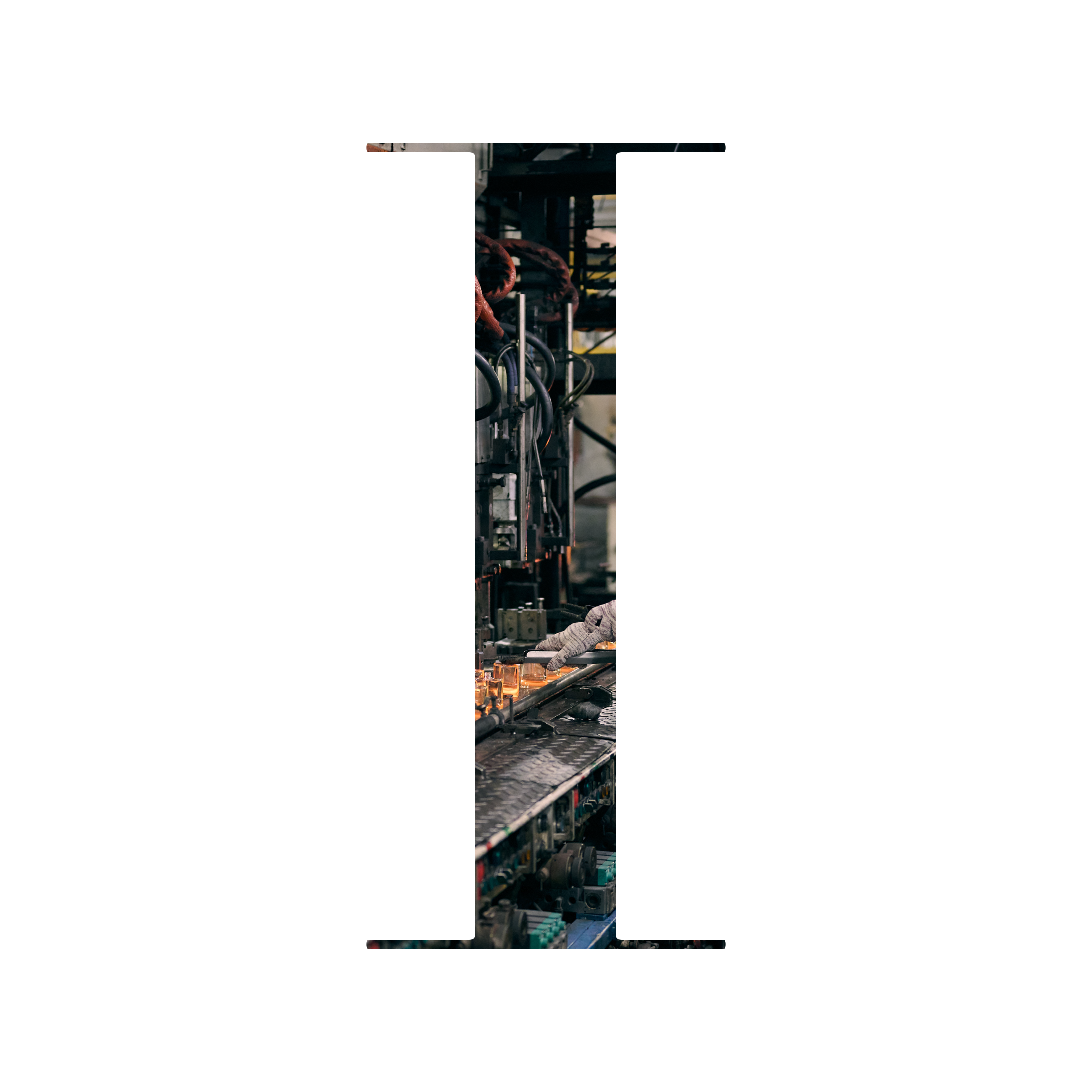
Infinite Glass
Glass made from recycled household glass (cullet known as PCR, post-consumer recycled glass). The usage rates of PCR glass in the production of “Infinite Glass 20” and “Infinite Glass 40” are above 20% and 40%, respectively.
IS machine
Named after its inventors, Ingel & Smith. A forming machine consisting of “sections” working in parallel. It can simultaneously form up to four bottles per section, this is referred to as “single, double, triple, or quadruple gob.”
G

Glass choice
Several glass quality levels exist, corresponding to different quality requirements. These levels balance production costs and the final product quality acceptable to the customer.
Glass distribution
Different glass distributions exist depending on customer requirements regarding distribution and weight: straight, marloquette, water droplet, or asymmetric (Verescence’s SCULPT’in innovation).
Glass type 3
Refers to the most commonly manufactured soda-lime glass. It is suitable for bottles and jars intended for perfumery and cosmetics.
Gluing
Attaching an accessory to the bottle. UV glue fully adheres after passing through a UV drying tunnel. The glass can be bare, frosted, or lacquered.
Gob or paraison
Drop of molten glass at 2237°F cut to the weight of the bottle to be manufactured before forming on the IS machine. Gobs are formed by the “feeder mechanism” and transferred by gravity into the “blank molds” via a chute system.
H
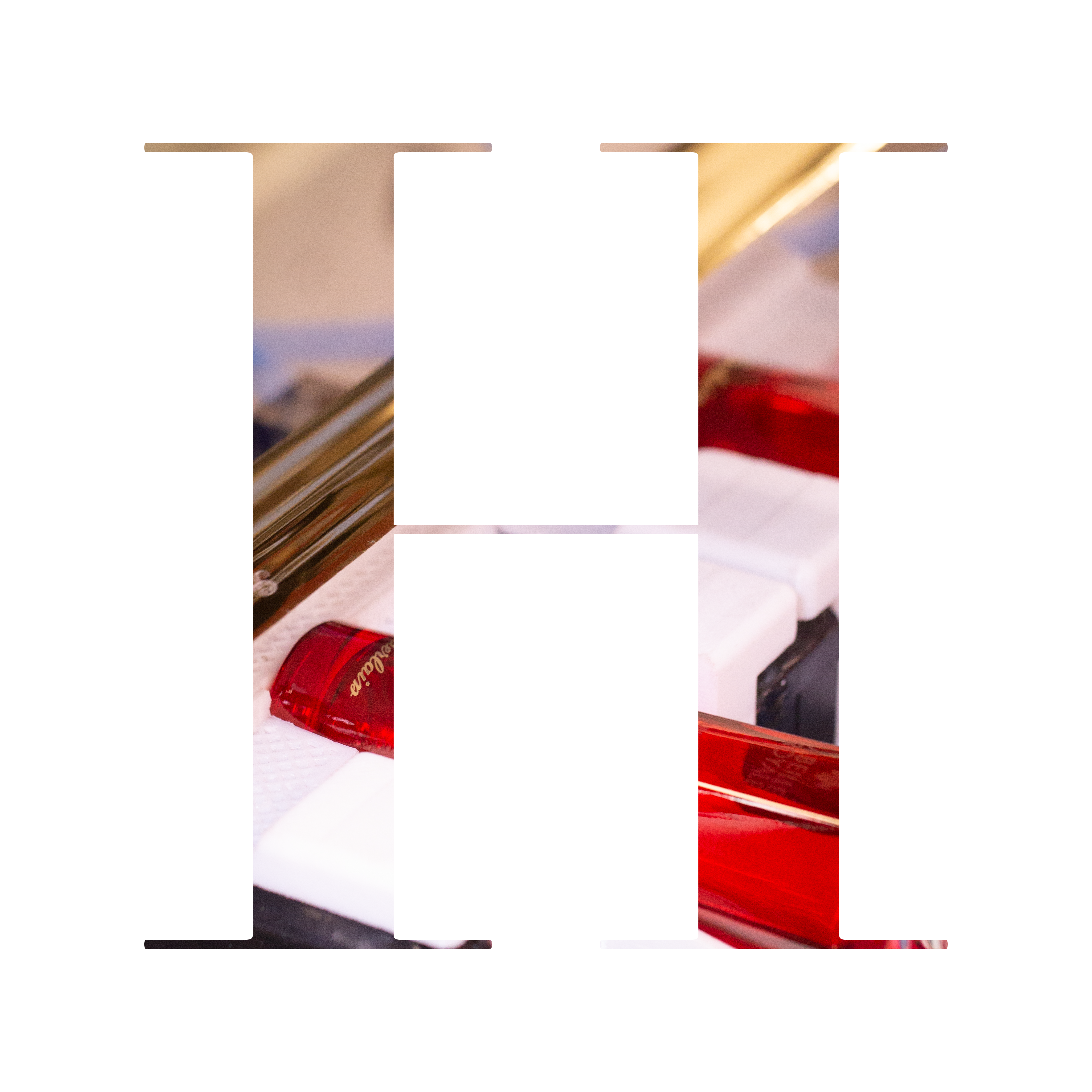
Heat sealing
Treatment applied to the sealing surface of the finish to enable the sealing of a foil lid.
Hot End
Area containing the furnace and production lines. It ends at the annealing lehr.
Hot stamping
Transfer of a metallic foil onto an organic underlayer.
L

Lacquering
Spraying of varnish onto the bottle, either fully or partially. Lacquering offers an infinite range of colors. Verescence uses water-based lacquers instead of solvent-based ones.
Load
The term used when referring to the amount of glass being drawn from the furnace, expressed in tons per day.
M
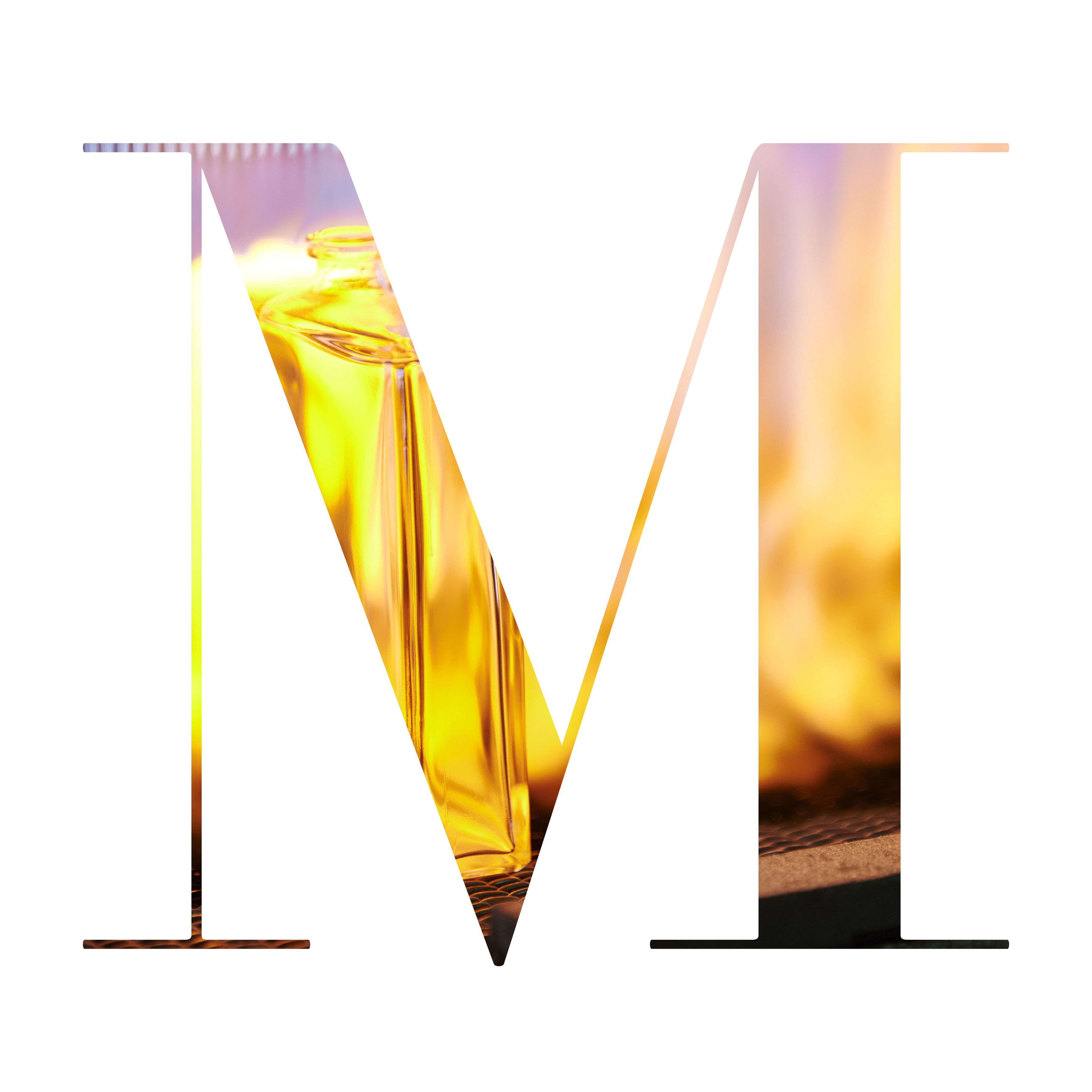
Mold seam
To allow bottle demolding, the mold joint can either be axial or offset, depending on the bottle’s section.
P
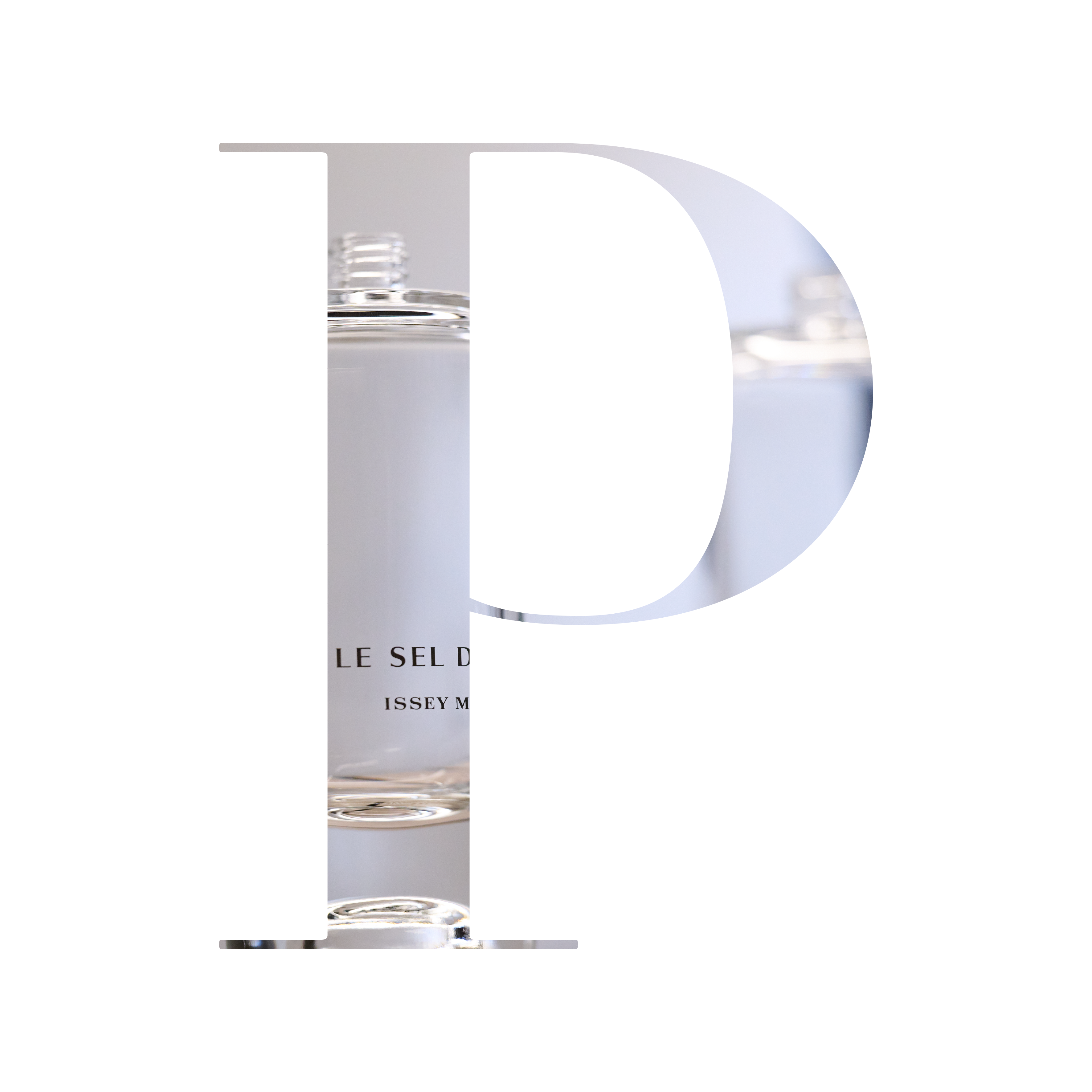
Pad printing
Ink transfer process using a silicone pad. Used for decorating areas that cannot be screen-printed.
Press and blow process
Forming technique where the glass gob is pressed by a plunger in the blank mold, then the preform is blown by compressed air in the final mold.
Punt
The bottom part of the bottle/jar that generally includes stability pads (three or four depending on the model’s section). This is also where legal information is usually placed, either by labeling, screen printing, or pad printing. The punt can be flat or concave.
R

Refractory materials
High-temperature-resistant materials used in the construction of glass furnaces and feeders.
S
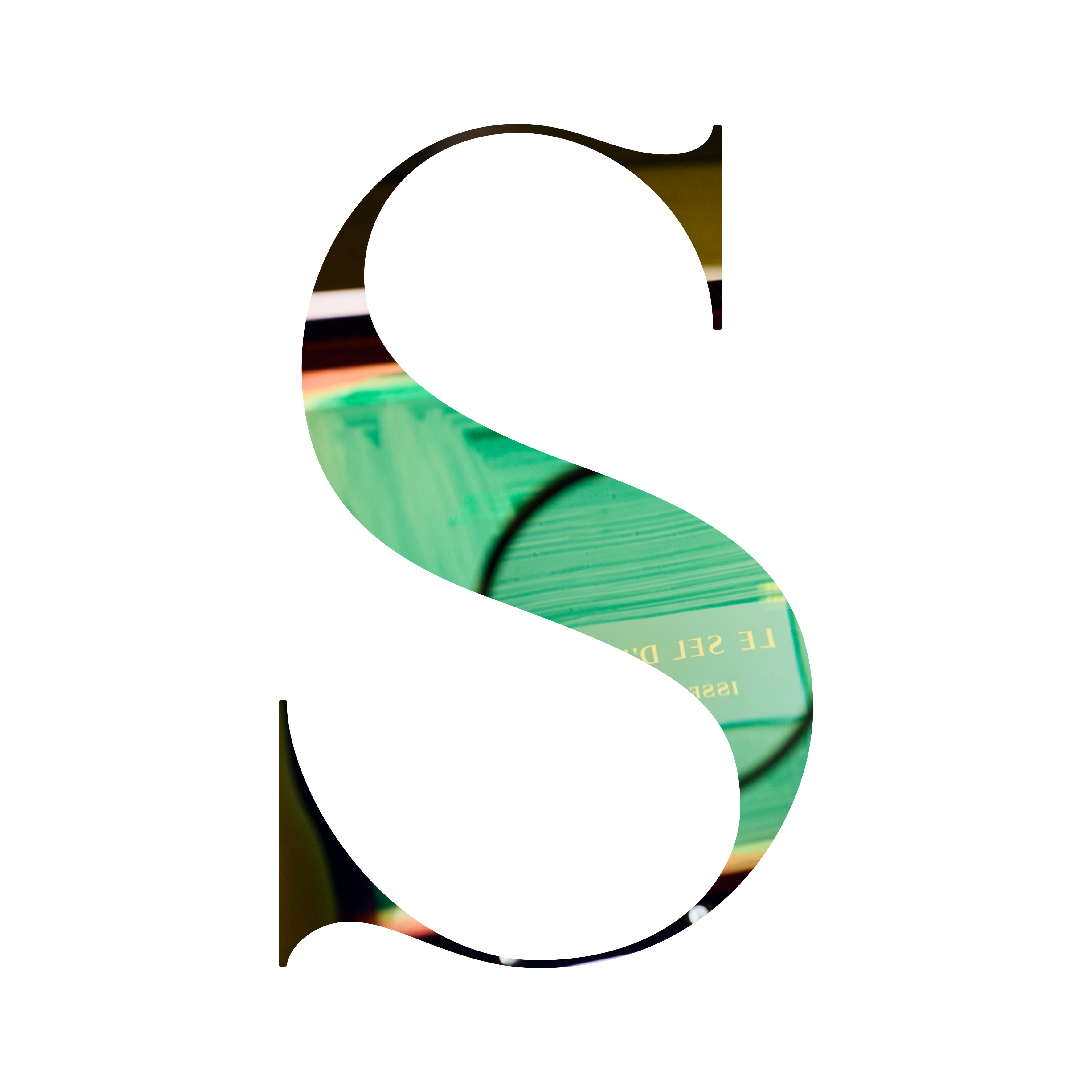
Sand blasting
Mechanical attack on glass by injecting corundum (a mineral species).
Screen printing
Printing process using a silk screen. Involves enamels, precious metals, organic inks, or UV inks.
Sharp edges
The edges of a bottle.
Shoulder
The area between the neck and the body of the bottle. The slope of the shoulder (or draft angle) must allow for proper demolding to prevent defects (cuts, stains, etc.). The angle depends on the complexity of the bottle.
T

Thermoluster
Surface treatment, also known as heat glossing, by spraying metallic oxides on the bottles after forming and before passing through the annealing lehr.
At the moment
View all news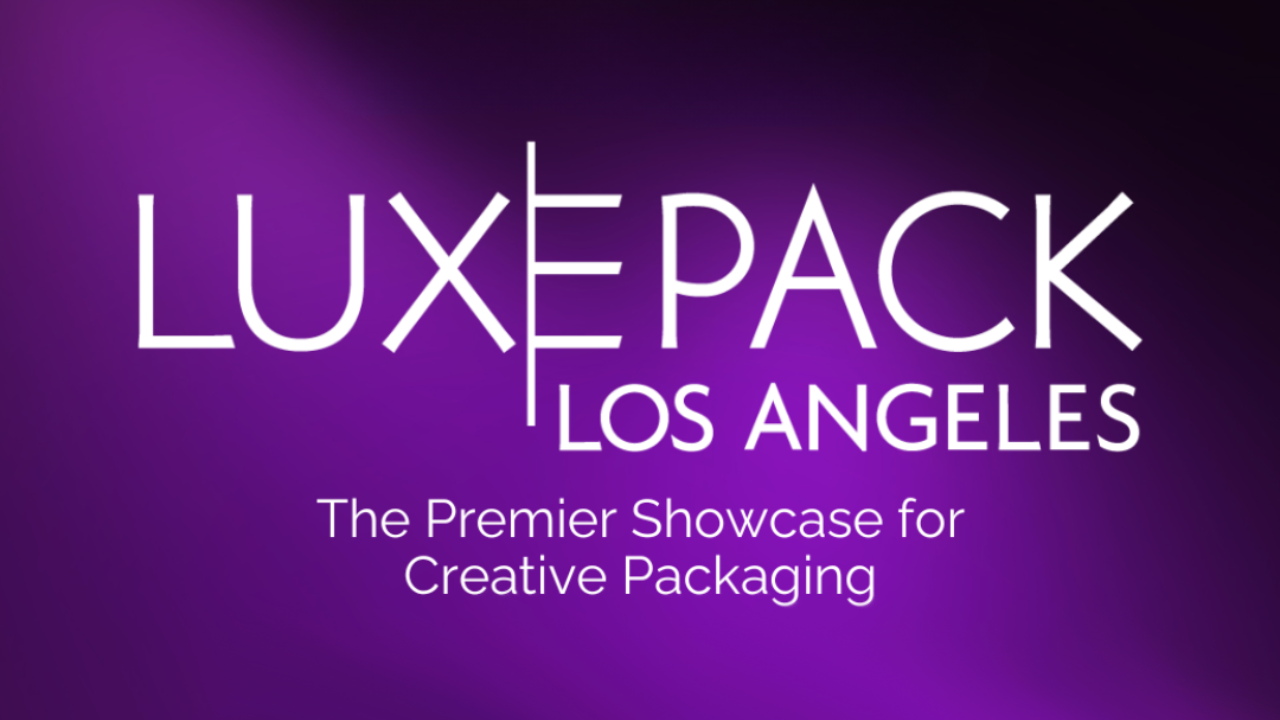
Join Verescence North America at LUXE PACK Los Angeles / MakeUp in™ LosAngeles on March 4-5!
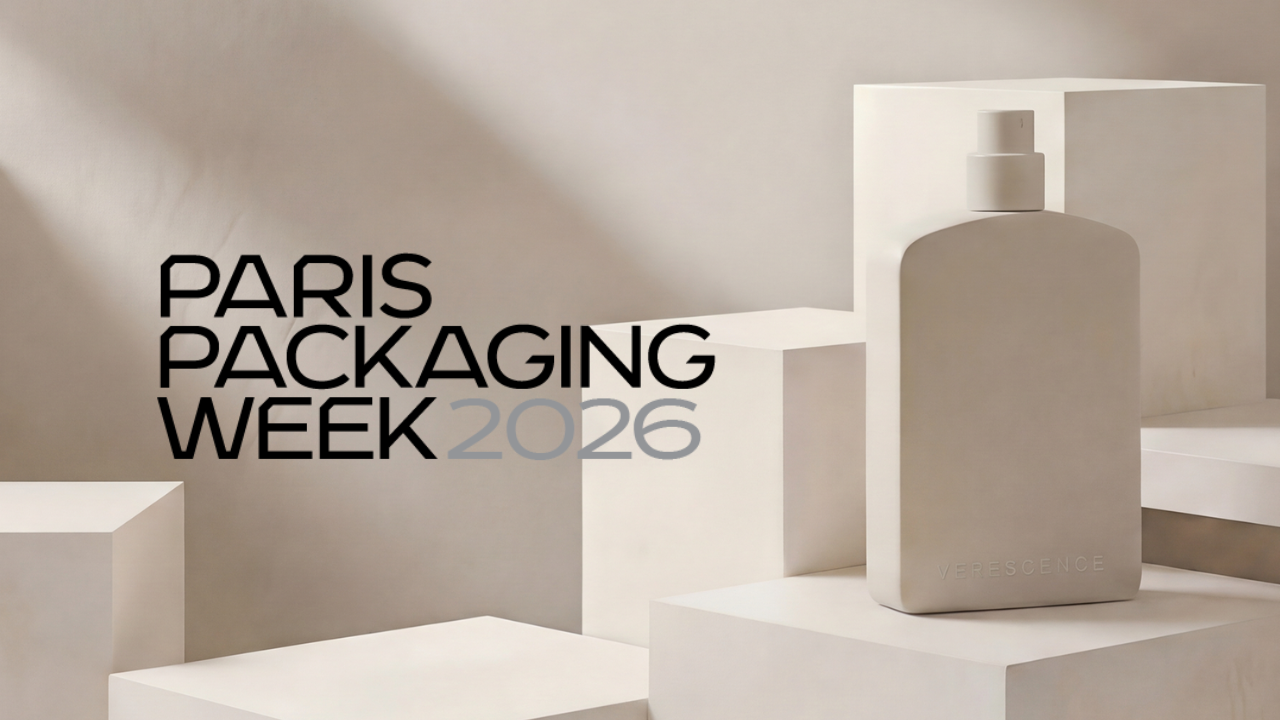
Verescence is exhibiting at Paris Packaging Week 2026 on 5 & 6 February at Paris Expo Porte de Versailles. We are pleased to invite you to visit us at booth I120.
